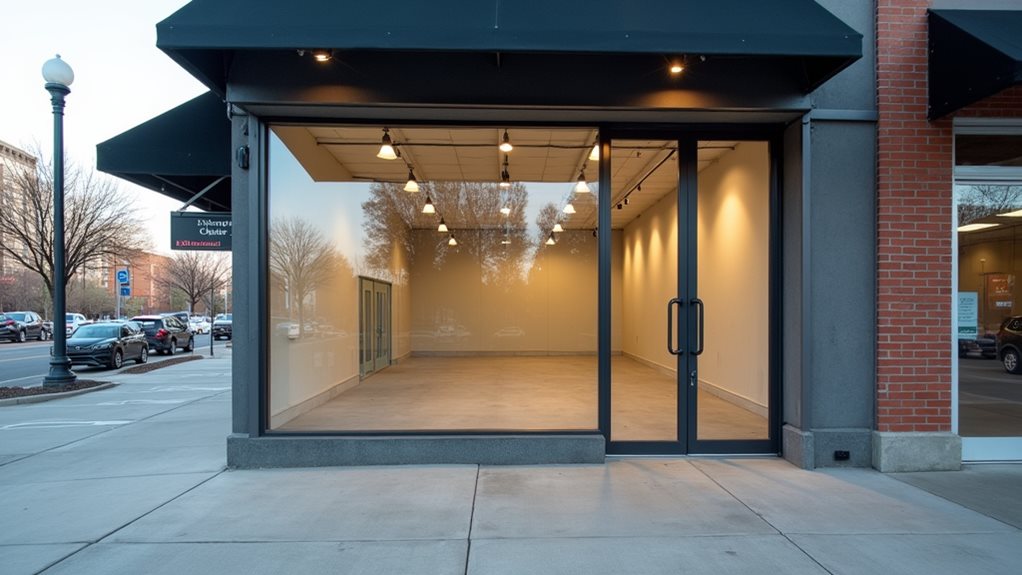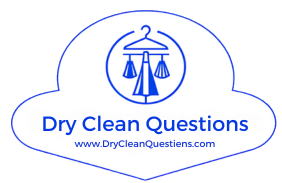You’ll need commercial-grade washers, dryers, and pressing equipment, plus a reliable POS system to track orders efficiently. Register your LLC with the Secretary of State, then secure specialized dry cleaning licenses and environmental permits for chemical handling. Don’t forget general liability and workers’ compensation insurance – trust me, you’ll sleep better knowing you’re covered. Find a commercial space near shopping centers, budget $30,000-$1 million for startup costs, and explore the extensive roadmap ahead.
Essential Equipment and Technology Requirements
When I first walked into that cramped commercial laundry supply store fifteen years ago, overwhelmed by rows of gleaming machines and price tags that made my wallet weep, I quickly learned that successful dry cleaning isn’t just about having the right cleaning chemicals—it’s about investing in equipment that’ll work as hard as you do, day after day.
Your vital equipment list starts with commercial-grade washers and dryers that’ll handle the relentless dry cleaning process without breaking down.
You’ll need a reliable POS management system for customer engagement and tracking orders, plus sturdy laundry carts and garment racks for organization.
Don’t forget ironing and pressing stations—they’re imperative for delivering high-quality garment care that justifies your startup costs.
You’ll also need specialized spotting boards for pre-treating stubborn stains before the main cleaning process, along with proper ventilation systems to ensure safe operation and regulatory compliance.
Business Registration and Legal Structure Setup

Three sleepless nights and a stack of confusing government forms later, I realized that choosing the right business structure for your dry cleaning operation isn’t just paperwork—it’s the foundation that’ll either protect your personal assets or leave you vulnerable when things get messy.
Most dry cleaners benefit from forming an LLC, which offers liability protection while keeping taxes simple through pass-through taxation.
An LLC shields your personal assets from business liabilities while simplifying tax filing through pass-through taxation benefits.
You’ll need to file your business registration with the Secretary of State, secure DBA names if operating under different titles, and obtain specialized business licenses and permits for commercial operations.
Don’t forget environmental permits for chemical handling—trust me, legal compliance beats costly violations every time! 😅
While franchise opportunities may provide built-in legal structure guidance and reduce some startup risks, they typically require additional franchise fees and ongoing royalty payments that independent operators can avoid.
Licensing, Permits, and Insurance Coverage

After spending two weeks maneuvering through the business registration maze, I learned the hard way that securing proper licenses and insurance isn’t just another bureaucratic hurdle—it’s your lifeline when unexpected challenges hit your dry cleaning operation.
You’ll need a laundry/dry cleaning license from your state, which requires proof of ownership or lease documentation. Environmental regulations demand registration with your Department of Environmental Protection when using specific cleaning chemicals, so don’t skip this vital step.
General liability insurance protects against customer accidents, while workers’ compensation insurance covers employee injuries—trust me, both are non-negotiable. If you’re offering delivery services, vehicle insurance becomes indispensable too.
Always verify local business licenses and permits requirements, because compliance isn’t optional when protecting your investment. Budget approximately $5,000 to $15,000 for business licensing and permits as part of your initial startup costs.
Location Selection and Commercial Property Considerations

Once you’ve secured all those permits and licenses, you’ll quickly discover that finding the perfect location feels like searching for a needle in a haystack—except the needle costs thousands of dollars monthly and determines whether your business thrives or becomes another cautionary tale.
Your location selection should prioritize commercial space near shopping centers, office buildings, and restaurants where foot traffic naturally flows, making customer accessibility effortless.
Think like a magnet—position your business where customers already gather, and let their natural movement patterns work in your favor.
Don’t forget to verify zoning regulations upfront—trust me, legal headaches aren’t worth it.
Balance rental costs against projected revenue while scouting for adequate parking space, because customers won’t circle blocks for convenience.
Analyze local competition thoroughly to identify market saturation and potential services gaps you can exploit.
Consider that urban and suburban areas typically offer the best opportunities since professional dress codes are more prevalent in these locations, creating consistent demand for dry cleaning services.
Sometimes the perfect spot isn’t obvious!
Startup Costs and Financing Options

While location hunting might’ve felt overwhelming, preparing for the financial reality of launching your dry cleaning business will either make you feel like a savvy entrepreneur or send you straight to your nearest stress-relief activity of choice.
Startup costs typically range from $30,000 to over $1 million, with commercial-grade equipment claiming the biggest chunk of your initial investment. You’ll need a rock-solid business plan outlining operating procedures and financial projections to secure fund through business bank loans or SBA financing options.
Don’t forget monthly expenses like rent, utilities, and licensing fees that’ll keep appearing long after opening day. Equipment leasing can ease the financial burden while preserving precious cash flow for those inevitable surprise costs.
Additional considerations include insurance coverage, utility deposits, marketing budget for launch, and potential franchise fees if partnering with established brands, making thorough financial planning and market research crucial for success.




